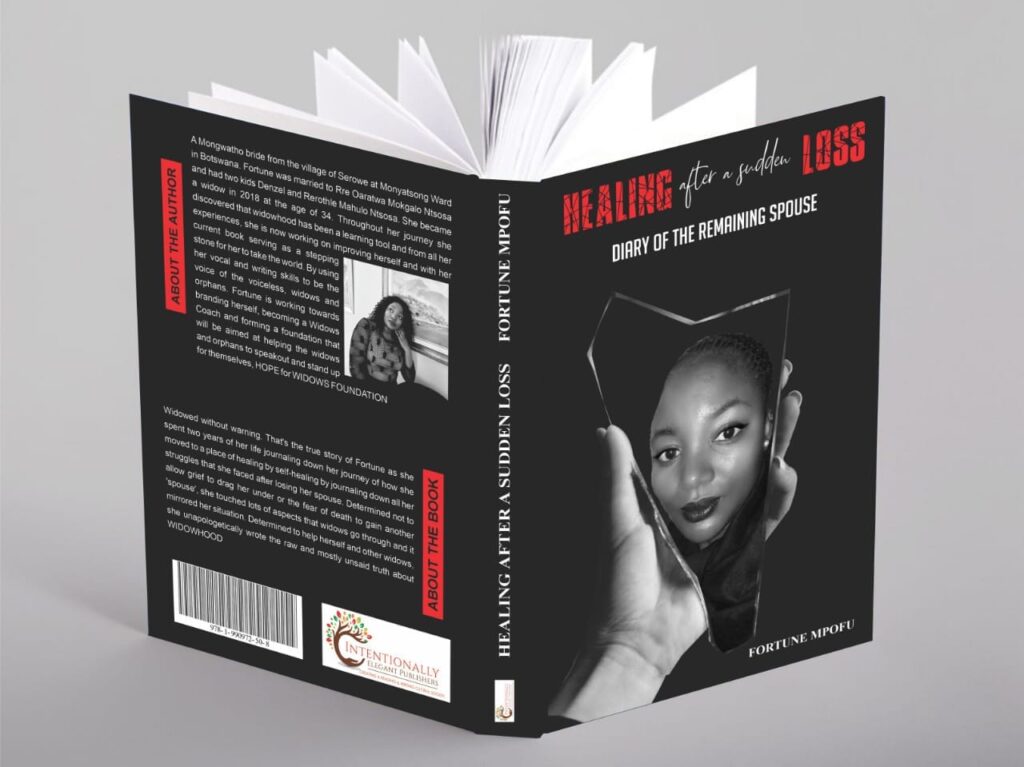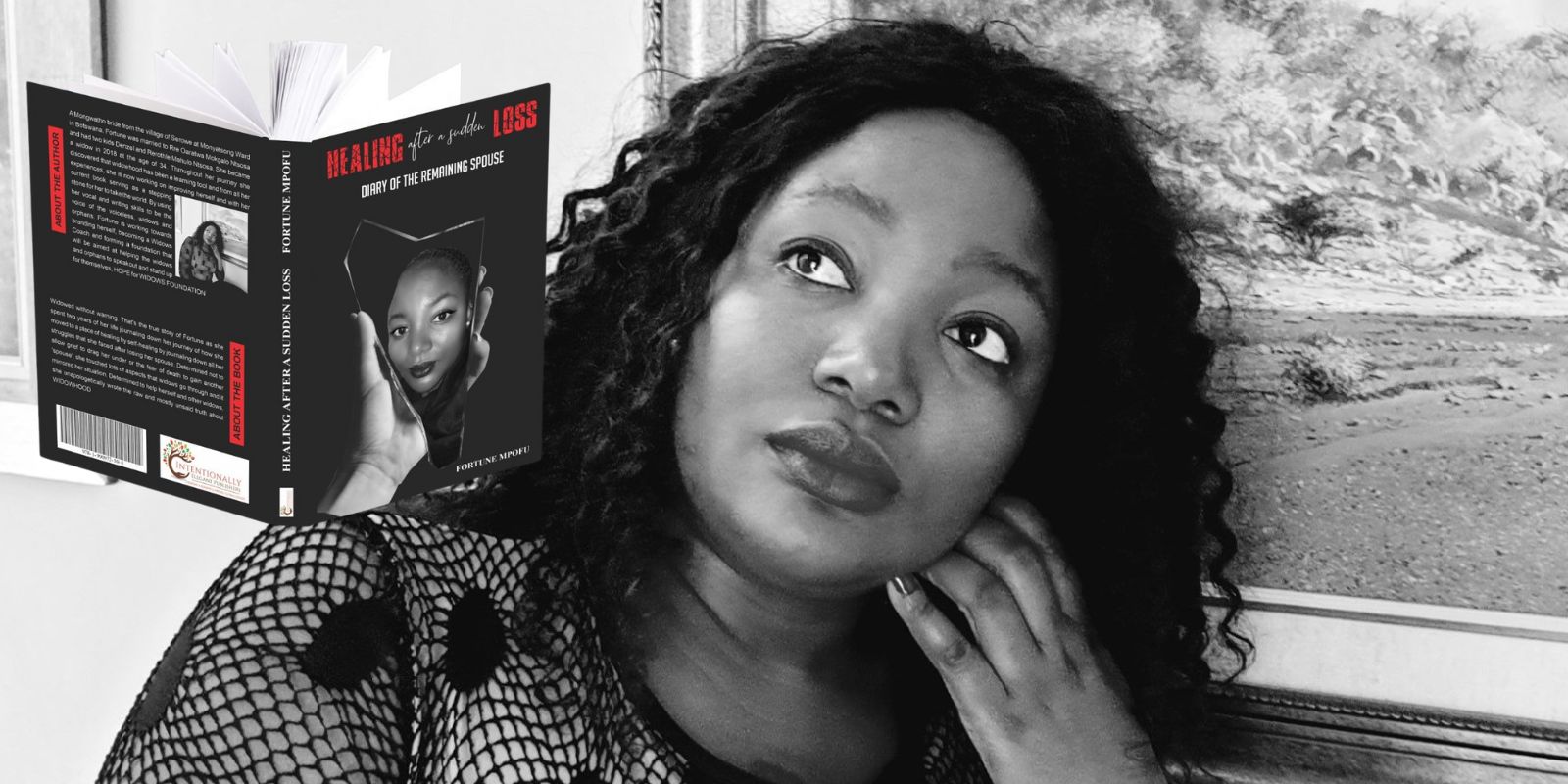Widowhood is often seen through the lens of quiet suffering, a journey of grief, societal scrutiny, and uncertainty. Yet, in a poignant episode of IssuesPaneNyaya, a different narrative emerged, one of resilience, self-discovery, and the power of advocacy. The episode followed the emotional journey of Fortune Mpofu, a young widow who lost her husband in 2018. Through her story, she sheds light on the unspoken struggles of widows, particularly the pressures they face from family and society, the legal battles over inheritance, and the emotional toll of raising children alone.
With June 23 recognized as International Widows Day, Fortune’s story is not just her own, it is a reflection of the millions of widows around the world who silently endure similar hardships. The way she chooses to speak up, put her pain into words, and fight for widows’ rights is a steady hand reaching out to those lost in grief, reminding them that they are not alone and that their voices, too, deserve to be heard. One of the most heart-breaking aspects of Fortune’s story is the suddenness of her husband’s passing. What began as a normal life with dreams for the future turned into a nightmare within days. The rapid transition from being a wife to a widow left her grappling with not only personal grief but also unanticipated social and legal battles.
Widowhood, especially for young women, comes with a unique kind of pain, the expectation to “move on” quickly, the stigma of being “unlucky,” and the pressure to remain strong even in moments of complete devastation. Society often fails to recognize the layers of loss that come with losing a spouse: the loss of companionship, shared dreams, and in many cases, financial security. Fortune’s experience illuminates the rigid expectations imposed on widows. Instead of being allowed to grieve at her own pace, she was pressured to conform to cultural mourning rituals dictated by her late husband’s family. Her emotions were policed, and her autonomy was threatened, forcing her to suppress the very feelings that needed expression. In many cultures, widows are expected to adhere to strict mourning customs, sometimes enduring social isolation, financial exploitation, or even accusations of wrongdoing. The belief that a widow should suffer in silence has been passed down for generations, making it even more difficult for women to reclaim their independence after losing their husbands.
Inheritance Battles and the Fight for Rights
One of the most distressing aspects of Fortune’s journey was the legal battle over her late husband’s assets. Like many widows, she found herself fighting against entitled in-laws who believed they had a right to her husband’s property. This is a painful reality for countless women, especially in societies where property laws remain biased or inadequately enforced. Instead of receiving support from her extended family, Fortune was met with hostility, lawsuits, and financial uncertainty, a devastating but all-too-common reality for widows around the world. The lack of clear legal protections often leaves women homeless, penniless, and abandoned, compounding the trauma of their loss.
Her story highlights the urgent need for change in the law, to protect widows from losing what is rightfully theirs to property grabs, financial manipulation, and wrongful evictions. Inheritance from a spouse should be a basic right, not something women have to fight for in court.
Beyond her own sorrow, Fortune had another heavy responsibility, to raise two young boys alone. For widowed mothers, grief often takes a backseat to survival. They carry the weight of their own grief while trying to be a source of stability for their children, balancing their emotional and financial needs even when their own heart is shattered. Fortune’s journey exposes the heavy toll of raising children alone after loss, the absence of a father, the constant strain of making ends meet, and the exhaustion of doing it all with no one to lean on. Without the right support, many widows and their children fall into a quiet struggle with depression, loneliness, and financial hardship. Fortune’s story highlights the urgent need for support systems, places where widows can find help, understanding, and resources to rebuild their lives, alongside the counselling and financial aid that can offer a path through their pain.
Healing Through Storytelling and Advocacy
For Fortune, healing did not come easily. However, instead of succumbing to grief, she fou

nd strength in sharing her story. Her book, Healing After A Sudden Loss: The Diary of the Remaining Spouse, is both a personal catharsis and a source of guidance for others going through widowhood. Writing became her way of processing pain, reclaiming her voice, and challenging societal silence around grief. Her journey proves that storytelling is a powerful tool for healing, not only for the writer but also for those who connect with their words. Beyond her book, Fortune established the Hope for Widows Foundation, an initiative dedicated to supporting women who have lost their spouses. By creating a community where widows can find emotional, financial, and legal guidance, she is transforming her pain into purpose. Her advocacy is a reflection of the strength within widows, showing that while loss may change them, it does not have the power to define who they are.
A Call for Change
Fortune’s story is not unique; it is the lived experience of millions of widows worldwide. Her narrative highlights the urgent need for societal change in how widows are treated, supported, and empowered. The question many may ask is what needs to change?
- Legal Reforms: Stronger laws must protect widows from inheritance disputes, financial exploitation, and property theft.
- Community Support: Support should extend beyond the funeral. Widows need sustained assistance in their grief journey.
- Mental Health Awareness: Counselling and therapy services should be accessible to widows and their children.
- Economic Opportunities: Programs that provide job training, financial literacy, and entrepreneurship support for widows must be prioritized.
- Changing Cultural Norms: Widowhood should not be seen as a curse or a lifetime sentence to suffering, widows should have the freedom to remarry, rebuild, and reclaim their lives without judgment.
Fortune’s journey from loss to empowerment reminds us that while widowhood is painful, it can also be a path to renewal. Through open conversations, advocacy, and community-driven support, we can work toward a world where widows are not only seen but also protected, valued, and uplifted. Fortune’s story reveals the human spirit’s ability to endure, heal, and rebuild.
For widows out there still fighting their silent battles, her message is clear: You are not alone. Your pain is valid, and there is life beyond loss.
